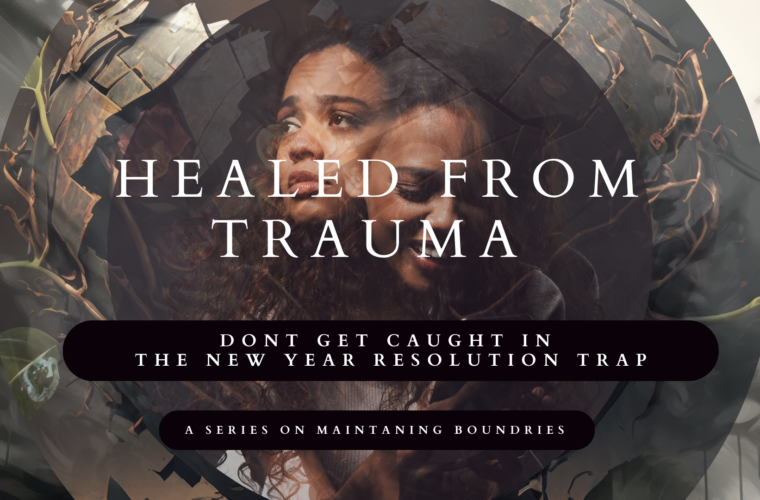The arrival of a new year often comes with a surge of hope and motivation for positive change. Many of us are familiar with the tradition of setting New Year’s resolutions, outlining our goals and aspirations for the upcoming months. While the intention behind these resolutions is admirable, it’s essential to approach them with caution, especially if you’ve embarked on a journey of healing from trauma.
The Burden of Expectations:
New Year’s resolutions can be powerful tools for personal growth, but they also carry the weight of expectations. For someone on the path to healing from trauma, these expectations can become overwhelming and counterproductive. The pressure to make sweeping changes overnight may trigger anxiety and hinder the progress you’ve made in overcoming past challenges.
The Trap of Comparison:
Social media often amplifies the New Year resolution culture, with countless posts showcasing seemingly flawless resolutions and achievements. The danger lies in comparing your healing journey to others’ seemingly perfect paths. Each person’s healing process is unique, and progress may not always follow a linear trajectory. Falling into the comparison trap can undermine your sense of accomplishment and divert your focus from the strides you’ve made.
Embracing a Mindful Approach:
Rather than succumbing to the pressure of setting grand resolutions, consider adopting a mindful approach to the new year. Acknowledge the progress you’ve made in your healing journey and celebrate the small victories. Healing from trauma is a continuous process, and it’s crucial to recognize that growth happens at its own pace.
Setting Realistic Intentions:
Instead of rigid resolutions, set realistic intentions that align with your healing journey. Focus on specific, achievable goals that contribute to your overall well-being. Whether practicing self-care, seeking therapy, or fostering positive relationships, small, intentional steps can lead to profound transformation.
Cultivating Self-Compassion:
Healing from trauma requires immense strength and resilience. Be compassionate with yourself as you navigate the challenges along the way. Understand that setbacks are a natural part of the healing process, and they don’t negate the progress you’ve made. Embracing self-compassion fosters a nurturing environment for healing and personal growth.
Building a Support System:
Surround yourself with a supportive network of friends, family, or professionals who understand and respect your healing journey. Share your intentions with them, and allow them to be a source of encouragement and accountability. Having a solid support system can make the path to healing more manageable and less isolating.
Reflection and Adaptation:
Regularly reflect on your intentions as the year unfolds and adjust them as needed. Life is dynamic, and so, too, should be your approach to healing. Be open to reassessing and adapting your goals to align with your evolving needs and circumstances.
Healing from trauma is a courageous and ongoing process that deserves recognition and respect. As the new year begins, resist the allure of the New Year resolution trap. Instead, approach your journey with mindfulness, set realistic intentions, cultivate self-compassion, and build a supportive network. Remember, healing is a personal and unique experience – honor your progress, celebrate your strength, and embrace the transformative power of self-love.




